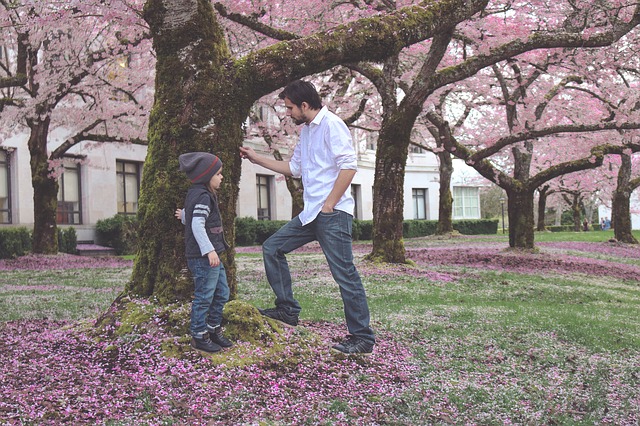Before I became a mom, a friend gave me some advice. “When you’re serving, making sure to bring along your kids.” At the time, it seemed like odd instruction. After all, I would have assumed that, at least when they were young, where I went, my kids would go. Therefore, if I was doing ministry, they would be alongside me, even if there wasn’t much for them to do.
It didn’t take long for me to realize how prescient my friend’s recommendation was. As experienced mothers can tell you, bringing your kids on any activity adds a level of complexity that is hard to appreciate when you aren’t a parent. Signing up to bring meals was no longer about just preparing the dish. It also meant I needed to consider nap schedules, how I would balance kids and food during delivery, and how it would impinge on my children’s planned consumption of dinner. A “quick drop off” was no longer in the realm of possibility. If they were going, the service became an excursion. Many times I was tempted to leave them at home with their dad, until I remembered my friend’s wise words. Because while bringing kids along can make serving more daunting, there are far too many benefits that I don’t want to forgo.
Learning By Doing
One of the most important benefits that my family has incurred is that my children are learning to serve. When we go deliver a meal, they help me take the food to the house. When we set up our house for a fellowship, they pick up their toys and get their hearts prepared to share. I could talk to them until I am blue in the face about the importance of serving others, but when they are serving alongside me, they learn what it means in practical terms. It is not unusual for them to make suggestions about what they could do to bless others. Because they have worked alongside with us from the beginning, their hearts are prone towards service.
Growing Compassion
Not only have my children learned to serve through serving, but they have developed hearts that are concerned about others. Because they know that there are people in need, and that we are working towards responding to that need, they are front-row witnesses to the struggles that others go through. This awareness combined with being a part of serving those we love has caused them to have deeper compassion and empathy than they otherwise might. Oftentimes, they will remind us to pray for hurting friends, or will proactively ask to draw a picture for someone that they know is in need of encouragement. They see hurt, and they see we work to alleviate it, and as result, their hearts are sensitive to those in pain. My hope is that even when we are not around this disposition towards compassion will be evident in their lives.
Family Matters
People will often talk about the importance of teaching your children values, however, as one friend likes to say “more is caught than taught.” Your kids may listen to what you say, but they will pay attention to what you do. Involving our kids in service has shown them that serving is important to our family. They realize that their mom and dad care about meeting people’s needs and helping people who need a hand. They’ve learned that even when we can’t do everything, we can do something, and for “Team Winter” doing something to help others is one of the ways that we demonstrate Christ’s love. When our kids serve others, even if it is as simple as graciously letting someone play with their toys, we celebrate and commend it. We want our kids to be more concerned with others than they are with themselves, and when we demonstrate that same priority, they know it truly is important.
The Blessing of Family
Most of us know the statistics about children who are raised going to church but quickly leave it when they become adults. Because our children are involved in serving others, and because they are witness to when others serve us, they have developed an appreciation for our church family at a very young age. Often times when we are on our way to drop off a meal or visit someone in the hospital, we will talk about why we are doing it and what a privilege it is to be a part of a church where we help one another. We also talk about the ways that we have been the recipient of others’ service and generosity. I’m confident that this alone is not assurance that my kids will have an appreciation for the family of God, but I’m hopeful that it will contribute to one. My children know that we don’t consider only those who are biologically-related to us as family; our church is our family and it is theirs as well.
Blessed to Be A Blessing
When my children come with me to serve others, more often than not it doesn’t go the way I planned. Recently, we went to bring a friend a meal, and after I asked my daughter to carry in one of the side dishes, it fell in their driveway. She was reticent to pick it up and carry it in the rest of the way but I encouraged her to do so. Because what I want my children to know is that sometimes serving others is messy and sometimes it is inconvenient, but we do it because God has called us to serve. And even when things don’t go the way we anticipated, it is still a blessing to be a part of what He told us to do.

